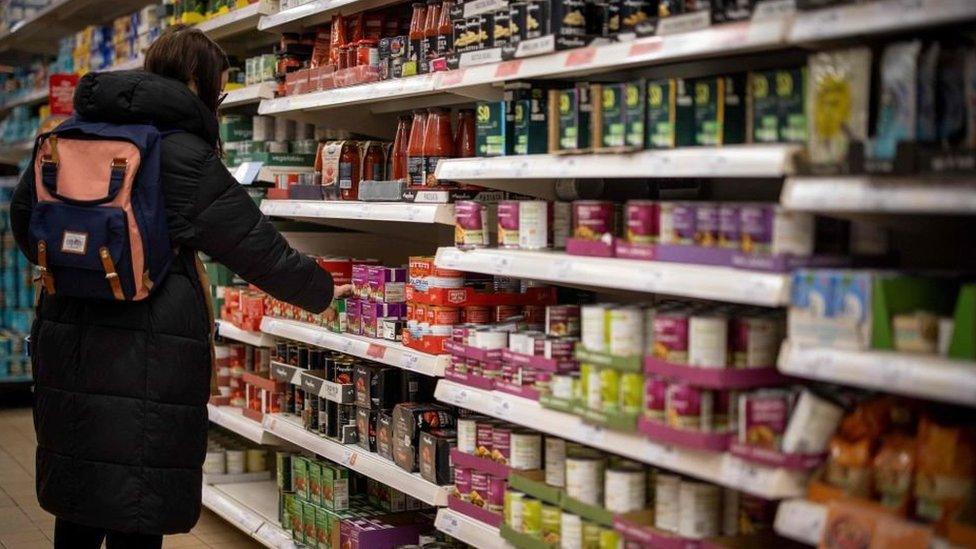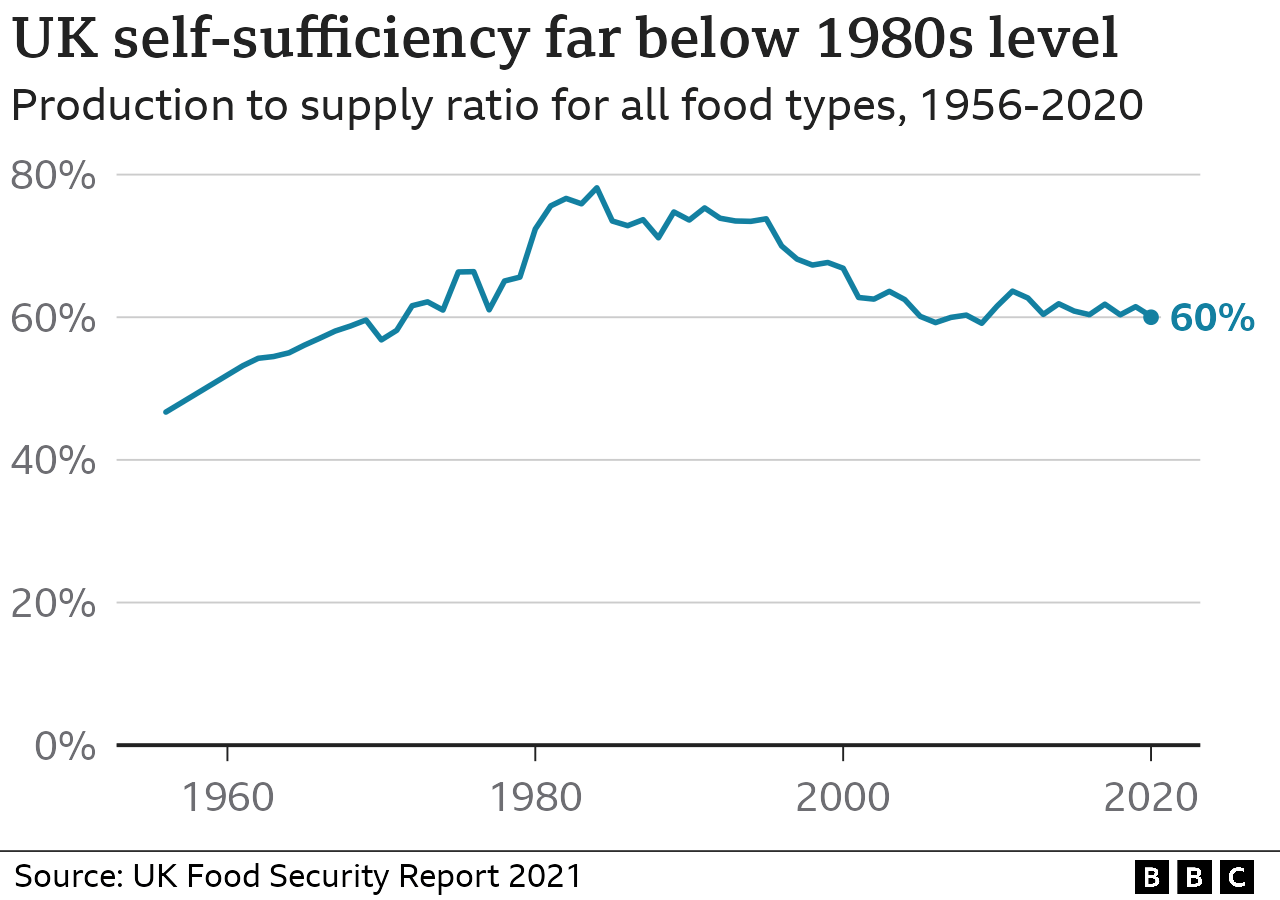Rishi Sunak told UK must grow more of its own food
- Published
- comments

Rishi Sunak needs to make the UK more self-sufficient and less reliant on imported food, the National Farmers Union (NFU) has said.
Climate change and the war in Ukraine have made global food imports vulnerable, the union argues.
The Government has said the UK is 61% self-sufficient in all foods.
NFU President Minette Batters has called on the prime minister to ensure this does not drop.
Farming minister Mark Spencer said: "In our Food Strategy last year we set a clear target to at least maintain production at current levels, and our new farming schemes invest in the foundations of food security - from healthy soil to abundant pollinators."
But Ms Batters said the government needed to give domestic food production the same focus and political emphasis as the environment.
"Our supply chains are too vulnerable. So, the government needs to take an active interest in the UK food chain resilience," said the NFU leader.
"Climate change is wreaking havoc on food production across the world, with farmers in Southern Europe literally fighting fires while farmers here are despairing as they now must spend thousands of pounds to dry sodden grain.
"At the same time, the conflict in Ukraine is putting pressure on the global grain market."


According to the NFU, Wednesday, 9 August marked the point at which the UK would run out of food if we had only had access to home-grown produce since the start of year.
Ms Batters said this highlights the need for the UK to be able produce more of its own food at home.
UK self-sufficiency reached a post-war high in 1984, when 78% of produce was home grown. It has declined steadily since then.
In a report last year on improving food security, external, the government said the UK is largely self-sufficient in wheat, most meats and eggs.
More than 50% of the vegetables the country eats are gown on UK farms - but only 16% of fruit.
And despite having a large fishing fleet, we are a net importer of seafood, because British consumers prefer fish caught outside of UK waters, such as cod.